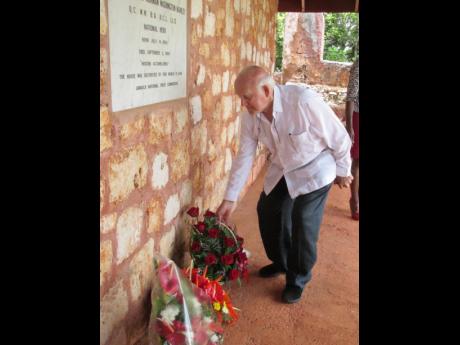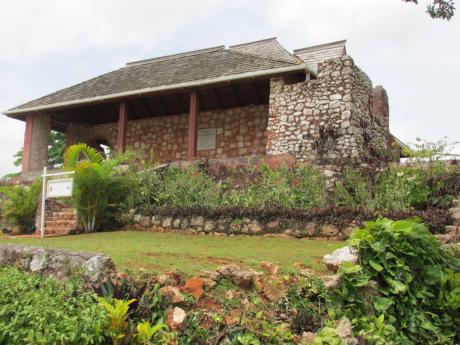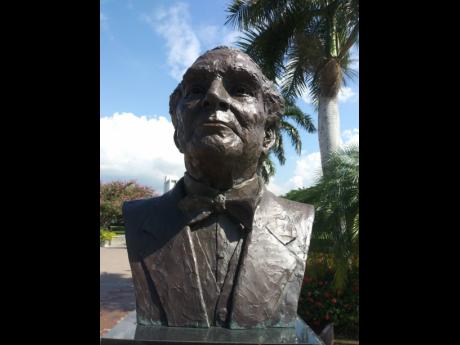Norman Manley the prolific hero
TOP-FLIGHT ATHLETE, Rhodes scholar, world war veteran, legal luminary, labour leader, premier, chief minister, founding father, national hero, Norman Washington Manley was one of Jamaica’s most gifted and illustrious sons.
Born at Roxborough, Manchester on July 4, 1893, Manley was the eldest son of the mixed-race Thomas Albert Samuel Manley, planter and produce dealer from Porus, Manchester, and his wife of Irish descent, Margaret Ann, the daughter of Alexander Shearer, pen-keeper from Blenheim in Hanover. He was one of four children.
Norman Washington spent his early years on his father’s property at Roxborough, but Thomas Albert died when he was still a young boy. Roxborough was in a remote part of Manchester and, soon after Thomas Albert’s death, Margaret Ann and her young children resettled in Belmont, St Catherine.
Manley was registered at Guanaboa Vale Elementary School at eight years old and began his secondary education at Wolmer’s Boys’ School in Kingston. He was there for only a year, withdrawing to attend Beckford and Smith’s in Spanish Town. He was back in St Andrew when he won an open scholarship to Jamaica College where he excelled at academics and athletics.
Upon graduation, Manley taught for a while at Jamaica College and Hope Farm School. In 1914, he got a Rhodes scholarship and enrolled at Jesus College, Oxford, to read law. The same year, World War II broke out, interrupting his studies. In 1915, he enlisted as a private in the Royal Field Artillery, becoming a first-class gunner sergeant, and won the Military Medal but declined a commission.
He returned to Oxford in 1919 and graduated in 1921 with a Bachelor of Arts first-class degree and the Bachelor of Civil Law with second-class honours. He won the Lee Prizeman Award for essay writing at Gray’s Inn before being called to the bar in 1921. In that same year, he married his cousin, Edna Swithenbank, in England. His legal career started as a pupil in chambers in London before he was admitted to practise in Jamaica.
He was to become one of the most brilliant lawyers ever to have practised in Jamaica. By the time he had given up active practice in 1955, because of ill health, he had appeared in every important or sensational civil and criminal case in Jamaica. He was at once the leader of the Jamaica Bar and that of the British West Indies. He became the first Jamaican lawyer to appear before the judicial committee of the UK Privy Council, and won, cementing his reputation in England as an adroit counsel.
By the time he started working with Jamaica Welfare Ltd, Manley found himself in the turbulence of the labour movement that took over Jamaica in the 1930s. It was a time of great social, economic and political upheaval that gave rise to the establishment of Jamaica’s current leading political parties. His involvement in union activities led to his association with the Trade Union Congress and the establishment of the National Workers Union in April 1952.
In the May 1938 labour riots, there was much tension, stand-offs, if you will, between employers and labourers. Manley offered his services as mediator and helped in restoring industrial peace. Encouraged by his success in attaining such, Manley traversed all over Jamaica, recruiting people to travel to Kingston to take part in the formation of a political party.
In September 1938, the People’s National Party (PNP) was established with the main objective for Jamaica to attain universal adult suffrage (UAS) and self-government. In 1944, UAS was achieved and the first general election held, but Manley and the PNP lost to his cousin, William Alexander Bustamante of the Jamaica Labour Party (JLP), which was established in 1943. Bustamante thus became Jamaica’s first chief minister.
Manley and the PNP were to taste defeat again, in 1949, but Manley himself won a seat in Parliament. In 1955, the ballots were in his favour, giving the PNP its first victory since the attainment of UAS and elevating Manley as Jamaica’s second chief minister. In the elections of 1959, under the new constitution which gave Jamaica internal self-government, the PNP won again and Manley became Jamaica’s first and only premier.
In 1958, the Federation of the West Indies was established to secure independence for Britain’s colonies in the Caribbean. But it was mired in controversy and issues of insularity. In 1961, the pro-federation Manley called a referendum to decide whether Jamaica should remain in the federation. The people voted ‘No’ and Manley called a general election to see which party would lead Jamaica into Independence. The JLP was elected and Bustamante became Jamaica’s first prime minister. Of note, Bustamante and Norman Manley helped to frame the Jamaican Constitution of 1962, in preparation for Jamaica’s Independence from Britain.
Norman Washington Manley died on September 2, 1969, at age 77. In that same year, he was conferred with Jamaica’s highest honour of national hero. His birthplace at Roxborough, Manchester is a national monument. In National Heroes Park, a monument was established in his honour. The Norman Manley Award of Excellence is given annually to Jamaicans who have given distinguished service to the country. The Norman Manley Law School on the Mona campus of The University of the West Indies was named to immortalise the King’s Counsel’s reputation as a brilliant lawyer. It is an indelible mark that he has left on the land of his birth.



